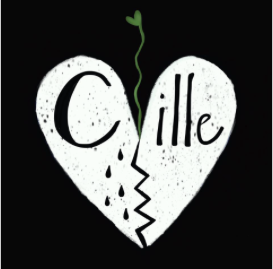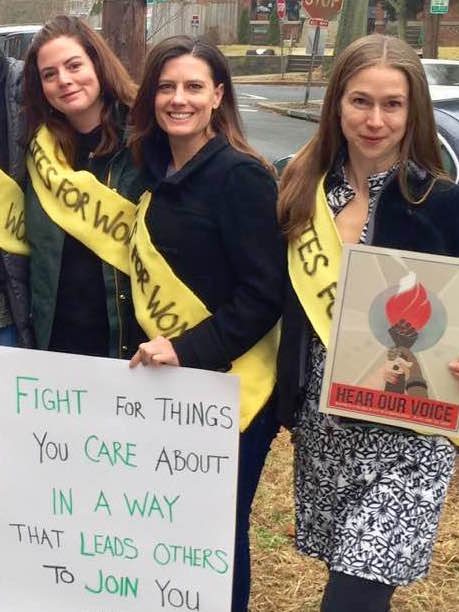Confronting Racism Through Personal Action and Deeper Community Connections
by Casey Williams | September 21, 2017

My hometown of Charlottesville, Virginia (also New Dream’s home base) has been the site of numerous racially charged events over the years, most recently the white supremacist rallies that attracted widespread media attention this summer.
For many people, these events have been a wake-up call to the hatred and viciousness that lurks in many of our communities.
But if it’s possible to see a silver lining, it is that recent events have elevated the urgency and opportunity to engage in the long, deep work of dismantling white supremacy.
What does this mean? Put simply, it means confronting and counteracting white supremacy—the belief that white people are superior to those of all other races and should therefore dominate society—within ourselves, within our communities, within our legal, political, religious, and institutional systems, and even within the environmental and social justice movements.
This is no small task, but every day more folks are joining the conversation and building the momentum to move toward meaningful social change and racial equity.
Expanding Our Comfort Zones
In the weeks following the deadly Charlottesville events, I found myself entangled in difficult conversations with loved ones—family and friends—about the rallies, protests, and racism in its many forms. Many aspects of my life stalled while I tended to these hard conversations. The need to respond to questions and challenges from loved ones and important people of my past plunged me into readings from and discussions with social activists and friends of color to better learn, understand, and process the many layers in play. (See below for a list of suggested links and resources.)
Like many white people, I had generally avoided deep conversations on racism and white supremacy, a luxury afforded to me by my white privilege. As uncomfortable as these conversations are for “quiet types” like me, when the events hit close to home, I couldn’t continue to let my anxiety and silence support the status quo and serve the white supremacist agenda. I had to advance these conversations—and relationships—to be able to address the realities of racism, bigotry, and injustice that surround us.
Rather than remain silent, I feel more compelled than ever to speak up and establish common ground with my loved ones (many of them silent themselves) that all people have the right to live in safety, to have access to the same opportunities, and to be treated with dignity. While we may differ in opinion on anti-racist strategies and tactics, we must each engage and “show up” in some way to bring this established fundamental belief closer to reality.
It’s up to people like me, who benefit from privilege simply based on the color of their skin, to do this work. The risk of my discomfort is nothing in comparison to the risks that threatened and marginalized individuals encounter every day.
A Call for Community

Since this summer’s events in Charlottesville, in addition to pursuing the challenging conversations that are so desperately needed, I’ve recognized another important truth: that building stronger community connections is essential to supporting those who are most directly affected by systems of oppression.
It is far more difficult to stand in alliance with members of our communities—black, white, Muslim, Jewish, LGBTQ, whoever—if we don’t know them personally. The corollary is also true: the people whom we will show up to support are generally the ones we know best. When we find opportunities to live and work side by side with folks from different backgrounds, faiths, and beliefs, we inevitably replace fear with a shared sense of purpose and humanity.
This fall, I've had the opportunity to expand my community as my children start at a new public school with students from approximately 45 different countries. I’ve met families from many different backgrounds already and look forward to furthering these friendships and expanding my perspective as the year progresses. Another friend who lives in a more homogeneous community has diversified his network by taking a leadership role with his local Habitat for Humanity chapter. This short article by Parker Palmer shares an inspiring story and five simple things we can do to help “heal the heart of democracy” and restore our civic community.
Studies affirm that engaging in meaningful relationships, being closely connected to a community, and helping others keeps us happier and healthier, whereas loneliness and isolation embitter us and contribute to ill-health. By volunteering in our communities, we can meet folks outside of our usual circles—but it’s essential to approach this work with humility and care, by listening without judgment and following the lead of those most impacted by racism in all its manifestations. In doing so, we also inspire others to be guided by their most compassionate selves, thereby strengthening our personal and collective spirits and community networks.
Supporting New Dream's Mission
I’ve been fortunate to work with New Dream for nearly five years, and I’m proud of the many ways the organization has promoted individual action and community connection to reduce material consumption, improve well-being, and protect the planet’s ecosystems. New Dream’s mission is based on the theory that a large-scale push from engaged individuals, communities, and organizations working to change social norms around what it means to live well and equitably can lead to wider changes in the policies and actions of governments, corporations, and other institutions.
The same theory could be applied to transforming racism and white supremacy: by first acknowledging our limited perspective, expanding our personal awareness, making individual changes, and taking individual actions, we can apply our understanding and join community efforts to redesign social systems based on a more equal distribution of power. This path can help us individually and collectively change the ways our society serves all people. When individual actions are aggregated, multiplied by millions, and then elevated to the community level, national and even global change is possible.
At New Dream, we recognize the need to establish deeper connections between environmental work and movements for social justice, such as racial justice and human rights. Our climate and environment are changing rapidly, and while these changes will ultimately affect all people, the severity of impacts is not equally distributed, as we have seen all too clearly in the aftermath of hurricanes Harvey, Irma, and Maria.
None of these issues can be effectively addressed on their own; one problem cannot be effectively solved without including the other. New Dream is committed to gathering input from diverse groups on how our work and resources, including SoKind Registry, can better support and advance efforts related to greater justice, inclusion, and equity.
Every single one of us, by speaking out on injustice and building stronger networks with people and groups from diverse backgrounds, can help to create a more socially, economically, and ecologically sustainable world—a world where all feel welcomed and affirmed in their full humanity. Can you join us in committing to this challenge?
Things to Read:
White Privilege: Unpacking the Invisible Knapsack and Some Notes for Facilitators by Peggy McIntosh, presented by the National SEED Project
True Connections Require Our Bodies and Our Minds by Christena Cleveland
A History of White Delusion by Nicholas Kristof
Racism As A Zero Sum Game by NPR Staff
The History of White Supremacy in America by Carl Skutsch
Curriculum for White Americans to Educate Themselves on Race and Racism–from Ferguson to Charleston by Jon Greenberg
Ten Ways to Fight Hate: A Community Response Guide by the Southern Poverty Law Center
Things to Do:
Google “what to do if you witness racism or hate crimes” and seek out resources and trainings on bystander intervention.
Donate money to organizers and organizations working to address racial justice issues, such as Black Lives Matter, Southern Poverty Law Center, Legal Aid Justice Center, and Virginia Organizing.
Talk to family and friends about all of the above.
Casey Williams is Director of Operations and Outreach for New Dream.

